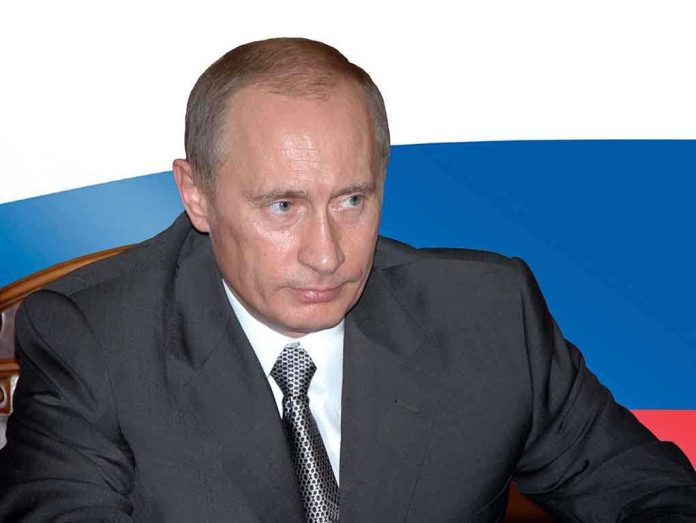
Putin’s decision to resume full-scale nuclear tests threatens to reignite a global arms race, raising alarms among conservatives who value strong national defense and stability.
Story Highlights
- Putin orders Russian officials to prepare for possible nuclear tests.
- This move follows Trump’s suggestion of U.S. nuclear test resumption.
- Russian Defense Minister calls for immediate readiness at Novaya Zemlya.
- Concerns of a renewed global nuclear arms race emerge.
Putin’s Provocative Directive
Russian President Vladimir Putin has ordered top officials to draft proposals for the resumption of nuclear weapons testing. This decision follows recent statements by U.S. President Donald Trump, who suggested that the U.S. might resume its nuclear testing program. Russian Defense Minister Andrei Belousov has advocated for immediate preparations for full-scale nuclear tests at Russia’s Arctic Novaya Zemlya site, signaling a sharp escalation in nuclear rhetoric and raising fears of a new global nuclear arms race.
The timing of Putin’s directive aligns with the ongoing deterioration of U.S.-Russia arms control agreements, including the collapse of the INF Treaty and uncertainty surrounding the New START agreement. The geopolitical rivalry has intensified, particularly in light of the ongoing Ukraine conflict, prompting both nations to maintain their nuclear test readiness programs. Russia’s recent infrastructure upgrades at the Novaya Zemlya site further underscore its readiness to resume testing.
Geopolitical Tensions and Military Posturing
The provocative actions of both Russia and the U.S. highlight the fragile state of global security. While the Comprehensive Nuclear-Test-Ban Treaty (CTBT) remains unratified by both nations, they had adhered to its terms until now. The potential resumption of full-scale nuclear tests threatens to undermine decades of arms control progress, potentially eroding the moratorium on nuclear testing and sparking a renewed arms race.
Experts caution that such actions are unnecessary from a technical or military standpoint and argue that they serve more as a show of power than a strategic necessity. The military and scientific establishments of both countries, however, continue to influence policy decisions, pushing for readiness and the preservation of institutional expertise in nuclear testing.
Implications for Global Security
The short-term implications of renewed nuclear testing include heightened tensions and an increased risk of miscalculation, which could lead to reciprocal actions by the U.S. In the long term, this could result in the collapse of the CTBT regime and a full-blown arms race. The financial and environmental costs of such developments will also be significant, with increased defense spending and potential international sanctions looming on the horizon.
Both nations’ populations, particularly those near test sites, face potential environmental and health risks. Moreover, the global security community and arms control advocates express concern over the undermining of nonproliferation norms and the destabilization of international security structures.
Sources:
How Long It Will Take Russia to Resume Nuclear Detonation Tests: Experts Weigh In














